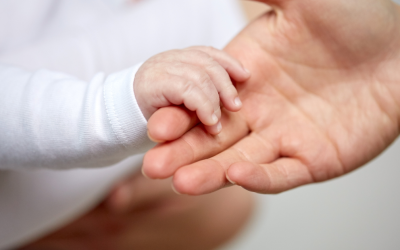The Effect Infertility Can Have on Your Mental Wellbeing
Infertility is not uncommon, yet that doesn’t make it unimportant. While infertility doesn’t necessarily mean we won’t ever have kids, it doesn’t erase the fact that it can turn pregnancy into a real struggle. It takes something we want and makes it hard to obtain in a way that hurts us.
It has a real impact on our lives and on our mental health. It changes how we interact with the people around us, how we navigate the world we live in. It changes how we view ourselves and how we view our partner. The effects infertility can have, particularly on our mental well-being, are vast, and they deserve to be looked into.
Emotional Distress
It’s common for a person struggling with infertility to experience high levels of depression and anxiety. Is that surprising, considering how stressful infertility can be? Between potential treatments and discouraging attempts at getting pregnant, it’s no surprise to know it causes a lot of emotional distress.
Anger is another common feeling. How could it not be? How could we not be angry when the rest of the world finds this easy? When our pain is dismissed with words that are meant to be encouraging, but do more harm than good?
And if we struggle with guilt too, that’s only natural. It’s easy to turn our pain inward, to blame ourselves for not being natural at this, particularly if infertility is a problem on our end, and not our partner’s. Of course, none of this is our fault. There’s no reason for us to feel guilty. But knowing that doesn’t erase our feelings, and it doesn’t erase the very real effects infertility has on us.
Grief
There is a loss that goes hand in hand with infertility. It’s a loss of our potential future, a sharp change in our identity as a person, as a parent. And it’s normal to find ourselves shocked when we first hear about our infertility. It’s not something anyone expects, and it’s not something easy to get over.
Grieving is a normal process and a common part of the struggle with infertility. We mourn what could have been; we mourn every failed attempt, every treatment that doesn’t go the way we hoped it would. We mourn the part of ourselves that we lost when we first found out about our infertility.
Stigma
There is a lot of stigma that surrounds infertility. A lot of blame gets assigned to either partner, and this can have a strong impact on our mental well-being. It all adds up, and the more we witness the people around us leaning into that stigma, the worse we feel about ourselves.
It can lead us to have low self-esteem. We might feel incompetent and defective, like something is seriously wrong with us. And we might feel like that something is irreparable. The world makes us think we are broken, and we agree because we have a hard time believing anything else.
Marital Problems
Infertility can lead to marital problems, too. Resentment can grow between us and our partner, it can cause problems between the two of us. Haven’t you noticed you’ve been arguing with your partner more often? Every little thing irritates you, and it takes everything in you not to snap. It’s not uncommon for couples to separate due to infertility, but that doesn’t make it hurt any less.f won’t affect us this way forever.
Infertility is a Struggle
If your infertility affects your mental well-being to the point where you spend most of your days feeling distressed, then don’t hesitate to seek professional help. We can help you deal with the baggage that comes with infertility, the one that’s so hard to cope with on your own. All you have to do is schedule an appointment with us.
To learn more about how Mindful Reflections can help, check out our Pregnancy Loss Counseling page.
Previous Posts
Nourishing Body and Mind: Nutritional Support for Postpartum Mental Health
The early days of motherhood are a whirlwind of emotions, sleep deprivation, and endless diaper...
Holistic Postpartum Therapy: Nurturing the Whole Mother
Motherhood is a transformative journey, but those early days can be a whirlwind of emotions,...
Self-Care Tips for New Moms: Balancing Mental Health and Motherhood
The early days of motherhood are a whirlwind of emotions, sleepless nights, and endless diaper...





